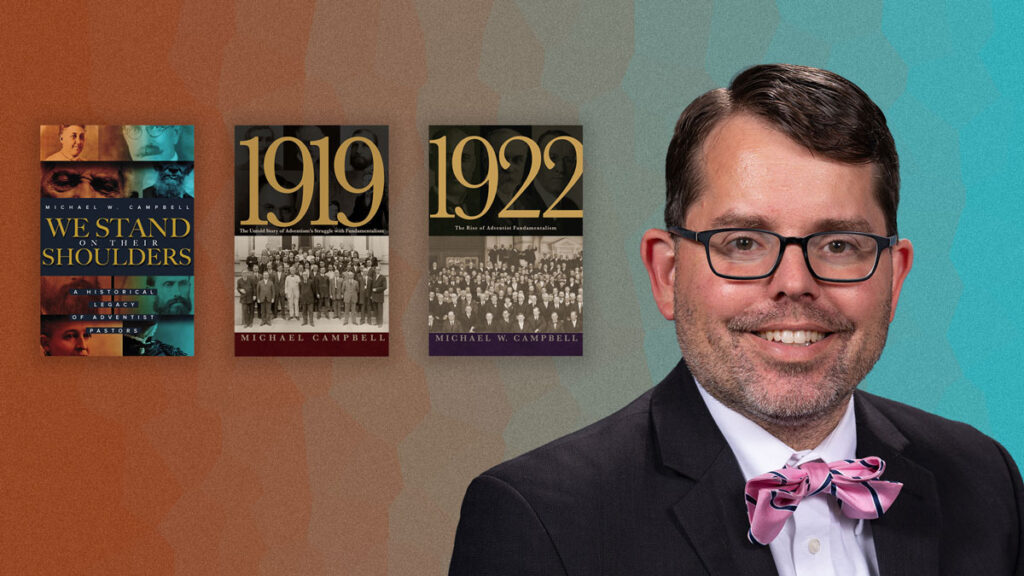We need to talk about interracial marriage.
There are three argument sources against interracial marriage that we, as Seventh-day Adventist Christians, should take seriously: the Bible, Ellen White and the “cultural conflict” argument.
Historically, opponents of cross-cultural marriage focused particularly on Genesis 9-11—the stories of the Flood, Ham’s curse, the dispersion of races at Babel. God clearly separated the races, and separate they should remain or so the argument went. To this they added the injunction against Israelites marrying into the nations around them and the verse in Acts about God appointing boundaries for the nations (see Acts 17:26).
It’s an argument of separation.
Yet the weight of biblical evidence says we are all one race (human) made in God’s image (Genesis 1:26–28), we are all equal in God’s eyes and the only distinction made is between Christian and non-Christian (Galatians 3:28). This addresses the question of not marrying outside Israel.1 The key point here is belief and worship, not race or cultural heritage. In fact, God is upset with Miriam for speaking against Moses’ black wife. His punishment? He turns her “ultra” white. “Miriam’s skin was leprous—it became as white as snow” (Numbers 12:10).
Church pioneer and prophetic voice Ellen White also addresses interracial marriage.
She makes two main arguments. First, that mixed-race children will suffer “humiliation” and “disadvantage”, so it is irresponsible for parents to subject them to such treatment.
Second, that it can create “controversy” and “confusion”. She advises that “time is too precious to be lost”2.
We must remember that she speaks from a monocultural experience and from the middle of the American Civil War and the fight for abolition and equal rights. She rightly speaks against people who would seek marriage to score political points. We are willing to argue that slavery in the Bible is a cultural phenomenon so why should we not apply the same rules to these statements?
Her advice is applicable in racially charged societies but in the South Pacific we live in a different cultural context. Our churches, reflecting our cities, are becoming more and more multicultural. Sydney, where I live, has the highest number of interracial couples of any Australian city.3 [pullquote]
Even in the Pacific I’ve met a number of people who met at Pacific Adventist University or Fulton College and married someone who is not from their country of origin.
Yet in the United States the Adventist Church is still predominantly split into a mainstream and an African-American church system. I can’t help but wonder if this compromise solution is maintained through our fear of intermarriage, fuelled by a misapplication of Mrs White’s comments.
So our arguments turn to the cultural conflict anecdotes Adventists still use. I’ve looked for statistics saying committed Christians in cross-cultural relationships are more likely to suffer marriage failure and divorce. I can’t find them.
My wife is Samoan. Yes, we’ve had our share of cultural misunderstandings. Are they terminal? No. More issues come from not understanding each other’s communication styles and needs. Yet people quote these urban myths like cross-cultural divorce is a done deal. Before I was married people honestly and earnestly warned me about the cultural difficulties we would face. I’ve seen comments on Adventist forums. I’ve even received personal letters.
Marriage is hard. Every family of origin is different. My parents are both “white Australians” and yet my dad grew up in Australian urban culture and my mum did all her schooling as a missionary kid in Fiji. She has spoken of her culture shock when she returned to Australia. The most important elements of a healthy Christian marriage are transparency and a shared faith in Jesus.
Our unconscious disapproval of cross-cultural marriage means we see others differently. We are suspicious and wary, which opens the door to uncharitable and even prejudiced thoughts simply because of the colour of someone’s skin. This undercover inequality is tolerated to “protect” our young people from marrying the wrong person. We must examine our attitudes and make sure we are not subconsciously using religion to propagate human prejudice and bias.






